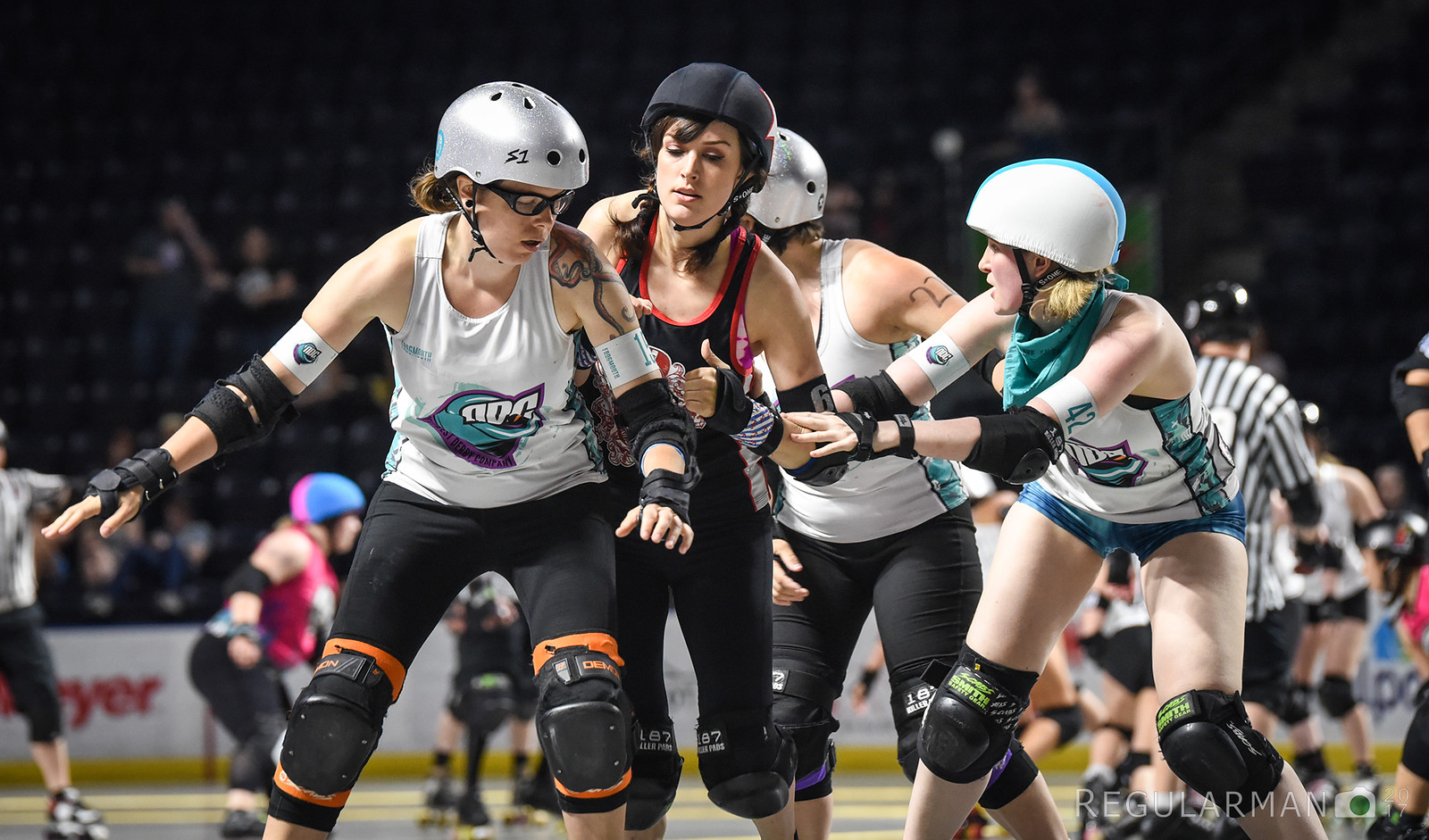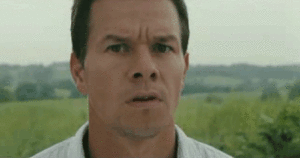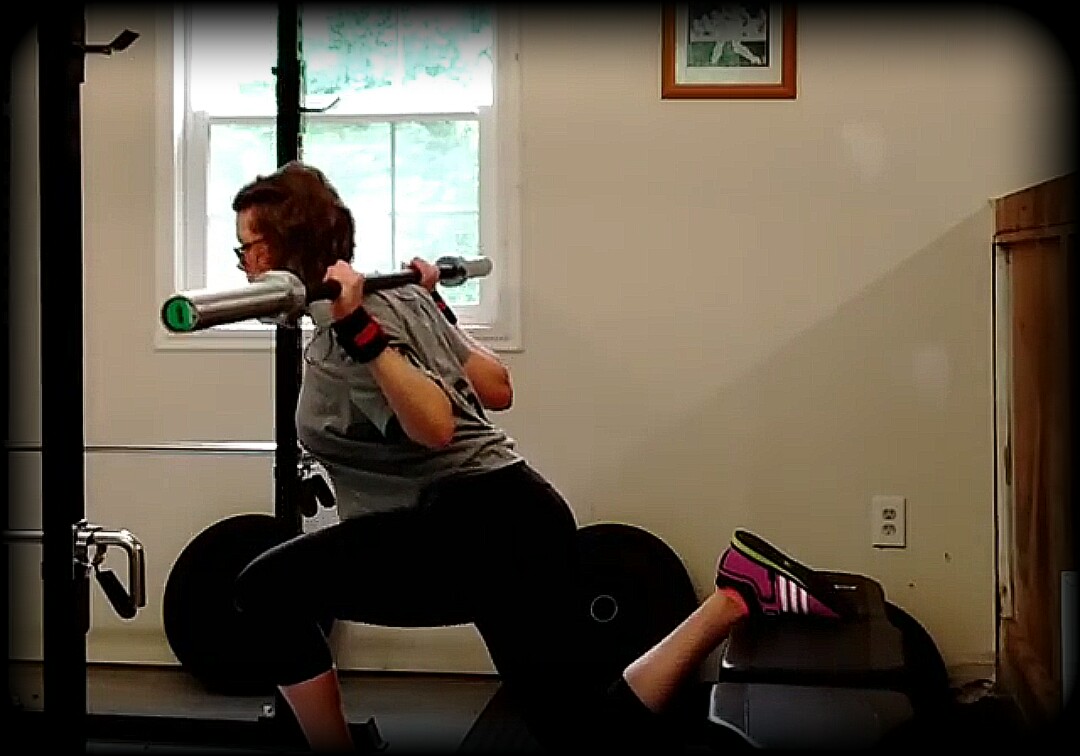
It was back in the days when I was line-up managing more often than I was doing anything else. The team I was managing for was in the Championship game of a tournament and it was the last jam. We were up by 12 points and had reached decision time with our jammer rotation:
- The jammer that was up had been having a lackluster game thus far. No leads, very few points scored. She was just getting annihilated by the team we were playing and close to fouling out in the process.
- The jammer that just went out had been having a hell of a game. Most points scored (on both teams), a near 100% lead streak, and NO penalties.
Obviously, I went with the hot hand.
She immediately got out with the lead only to incur TWO penalties upon her re-entry to the track. Our jammer sat in the penalty box crying her eyes out as the opposing jammer lapped through the pack twice.
Our team won the game — just barely — but the damage had been done. Not to the team, not to the blockers on the track, but to that jammer’s psyche.
We talked on the carpool home about her tournament performance and this is what she said to me:
This is literally the worst tournament I’ve ever played. Maybe it’s time for me to retire.
Uh. What?

I didn’t have to run the stats line to tell me that she had actually had THE BEST tournament of the two years that we’d played together. Her lead percentage was just over 75%, she had a high and positive track rating, and she had outscored every other jammer there. By nearly double.
Even after showing her the stats, she was reluctant to admit that the weekend had been anything other than a wash.
Why couldn’t she remember her performance accurately?
According to research done by Daniel Kahneman and colleagues, humans are prone to two separate and distinct phenomena when it comes to accurately remembering how we’ve performed in an event. Or anywhere really.
- DURATION NEGLECT
- THE PEAK-END RULE
Duration neglect describes our inability to reflect on the entire duration of an event when we look back in our memory. Games are long and fast-paced. There isn’t an easy way to remember the entirety of your time on the track. So we grab out ‘snapshots’ and assume that those quick memories are representative of the full duration.
The peak-end rule describes the type of ‘snapshots’ we take. Humans tend to focus on the REALLY GOOD or the REALLY BAD. And after time has passed, the really bad events stick in our memory. It’s likely evolutionary. If I nearly got murdered by a herd of mammoths, it would behoove me to step more carefully next time. This rule is why the event that ENDS a performance is more likely to stay in my mind than any prior events.
Endings are important after all.
And we use these phenomena to jump to conclusions about our performance without even realizing we’re doing it.
My jammer friend is a perfect example: Her tournament ended with a few, potentially high-cost mistakes and she reacted to it emotionally. (We also are more likely to remember emotionally charged moments.) So for her, the entire tournament was bad.
It’s a trap.
What? You knew it was coming.
The trap is really how quickly your memory of an event can change as duration neglect and the peak-end rule take effect.
CONSIDER THIS:
Roller derby games are divided up into halves, right? Often, at halftime, when teams are putting their heads together and reflecting upon the game, the peak-end rule comes in to play.
This is especially common if either team has had a run of some kind of close out the half. If the team that you’re playing suddenly took the lead in the last jam, your ENTIRE TEAM is less likely to reflect favorably on the first half of gameplay.
Even if your team had the momentum for 25 minutes of the half. Even if your team is the underdog. Even if your team is performing well above its average. You will see the first half as more of a failure than a success due to the last few minutes of it.
The peak-end rule causes your reflection of that half’s performance to be impacted by the very end of it. And you fall for duration neglect as you fail to look back on ALL OF THE JAMS rather than just the last two or three.
It doesn’t happen all the time.
But study after study after study indicates that our memories just aren’t as accurate as we might hope. Especially if we’re going to be using them to review our performance. And make improvements for the next time.
How can you avoid the trap?
As G.I. Joe used to say, “Knowing is half the battle.” Once you become aware of your brain’s tendency to duration neglect and the peak-end rule, you can start combatting it and create REAL, USEFUL REFLECTION on how you’ve performed on any given day.
1) KNOW YOUR STATS.
Numbers are objective where your brain just isn’t. As much as possible, collect and analyze statistics from games. Don’t just have the numbers, but understand what they mean in terms of accomplishing your goals. Not every piece of data is going to give you information relevant to YOUR goals, so choose wisely.
For example, a dedicated blocker isn’t going to get a whole lot out of a jammer heat map. Unless it’s from the opposing jammer…
2) WATCH YOUR FOOTAGE.
Aren’t we lucky to live in an age when we don’t NEED to rely on our memories quite so heavily?
I would certainly love to forget the debacle that was my first USARS game, but the footage is on YouTube for everyone to see. (No, I will not link that here.) And that footage actually helped me hone my game a bit so I wasn’t quite so useless to my teammates.
The beauty of footage is that you can film almost anything: drills you’re working on, practices, scrimmages, bouts. The list goes on. It allows you to skip that pesky duration neglect because you can skip back through the entirety of the event.
And, yes, you can watch footage of yourself without wanting to die.
3) BASE YOUR JUDGEMENTS ON YOUR STATS.
We all get feelings with a capital F sometimes. But the way you feel about a game almost never has any bearing on how you actually did.
When it comes to deciding what that next step toward your goals will be, you should be using your stats — not your feelings — to guide you. Because stats are objective and you aren’t But also because stats reflect your actual gameplay. Not how you perform in practice or when there’s no pressure and you’re just messing around.
Look at your stats (or footage) and ask yourself: Where do I need to improve next to make my overall game better?
4) AVOID FOCUSING ON SNAPSHOTS.
The first time you land your apex jump can feel pretty rad. And the first time you foul out of a game can feel pretty shitty.
Both of those are just ‘snapshots’ of the game. Single moments that don’t tell the whole tale of how you actually performed. Use your stats, footage, and memory ‘snapshots’ together to form a cohesive picture of the way you played. All of those pieces have value. And they give you more information when paired together.
5) END PRACTICES ON A POSITIVE NOTE.
Now that you know about the peak-end rule, you can maximize your brain’s tendency to focus there. Even really awful practices or drill sessions or workouts can be made to feel better if you just end on a high note.
My team often ends practice with games to boost everyone’s spirits. When I was coaching, I forced all the players to close their eyes and identify something they did particularly well that day so they could carry that feeling out of practice. Whatever if is that you’re doing, even if it’s hard and terrible, you can trick yourself into viewing it more favorably if you put a little fun at the end.
6) KEEP A PERFORMANCE LOG.
I’ve hammered this A LOT in terms of off-skates training, but the same rules apply to performing on-skates.
How do you know that you’re improving if you don’t write it down? YOU DON’T.
Performance logs should be used after practices, drill sessions, scrimmages, and games to put on paper all the chunks of your performance that are stuck in your memory. The performance log is your personal history of your performance so that you can see your trajectory over the course of a season and keep yourself heading in the direction of your goals.
Regardless of how you keep your performance log, you want to take note of:
- Facts of your training session (what did you do in practice or in the drill, how long did you do it, etc.)
- Goals for your training session (or game) and the extent to which each goal was met
- How you felt physically
- How you felt mentally
- What you need to work on in the future based on today’s performance
- A success from the training session (what you did well or accomplished)
- Any lessons learned or reminders that can be applied to competition or the next training session
The Real Key.
I’m an absolute data head. I love it. Charts, graphs, checklists, assessments — I’ve got them. But data doesn’t do you any good unless you use.
And then re-use it.
Your performance log, stats, footage, and ‘snapshots’ are only worth as much stock as you put into them. A stack of data never looked at is just a ream of paper. (Or a pile of computer code.) Spend the time collecting this information and then LOOKING AT IT AGAIN after a few months.
These things will become the roadmap for not only where you’re going, but where you’ve been. And, as I constantly discover on family road trips, it’s easier to get where you’re going with a map.
Want More?
This blog post is an expanded excerpt from Train Your Brain to Shut Up. A book developed specifically to provide athletes with the tools to improve their mental game. This journal gives you the tools to build an athletic mindset that supports—instead of sabotages —your performance.
Just like your physical training, your mental training is integral to your success in-game. And it takes practice and training to get it the way that you want you. With this journal, you’ll learn:
- What mindset is (and what it isn’t).
- Why (and how) to build an anti-anxiety pre-game routine.
- To recognize your negative thoughts without letting them sink you.
- Tricks to flip your thoughts into something less negative.
- Ways to turn around “bad” practices or games.
- A consistent way to PRACTICE your athletic mindset.
Focused journal prompts to work on your mental game all wrapped up in a package you can fit inside your kit bag.

